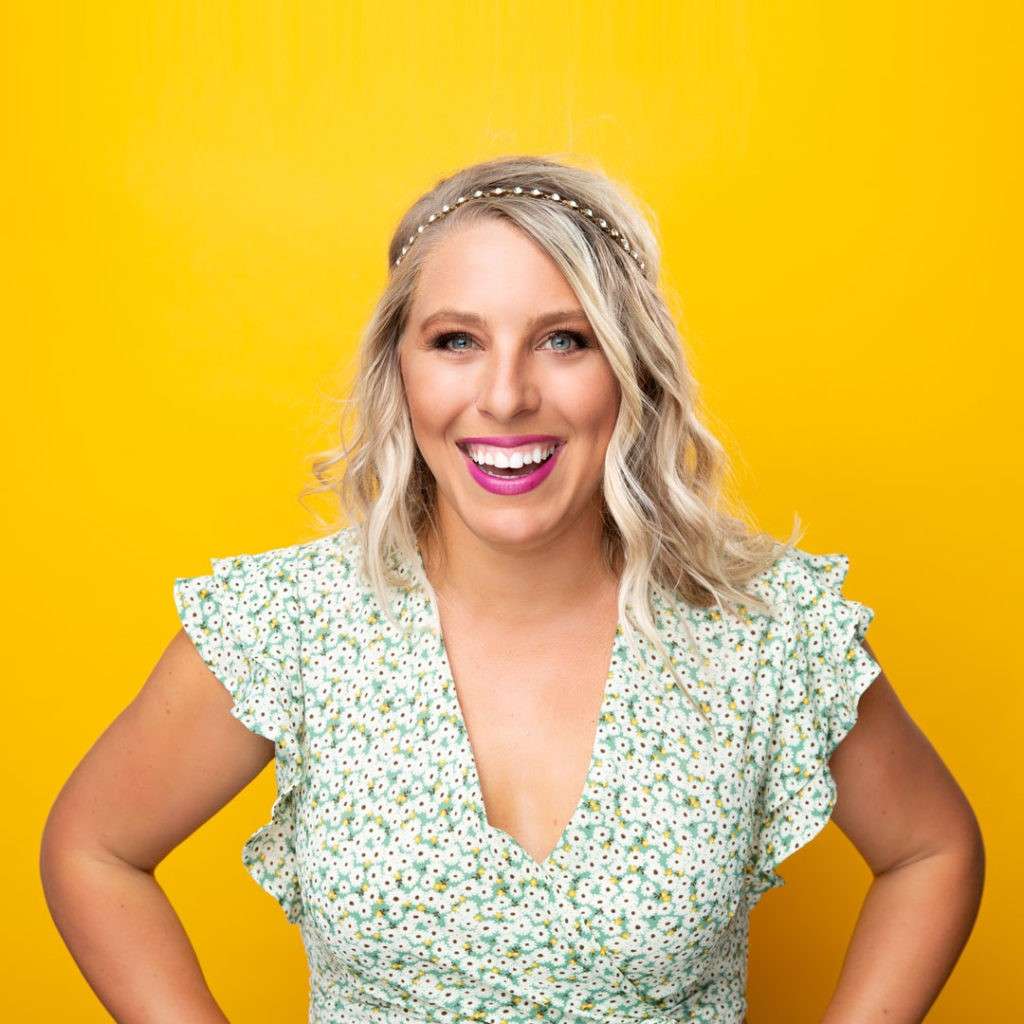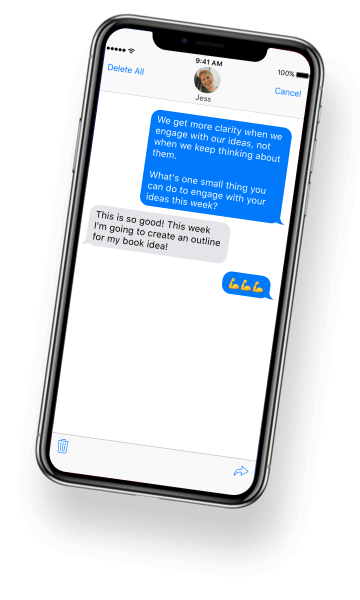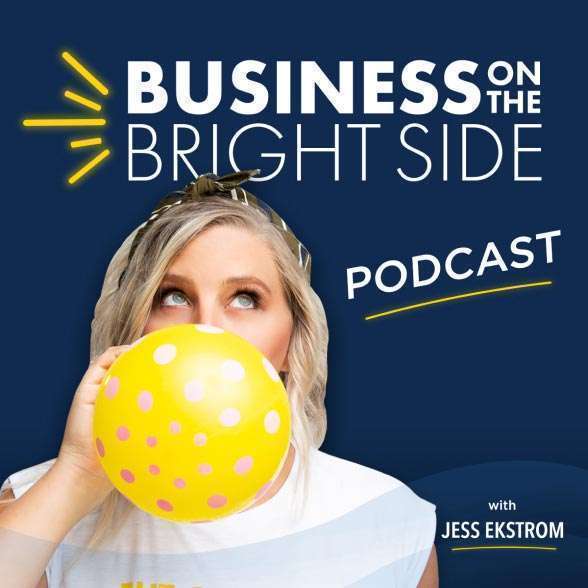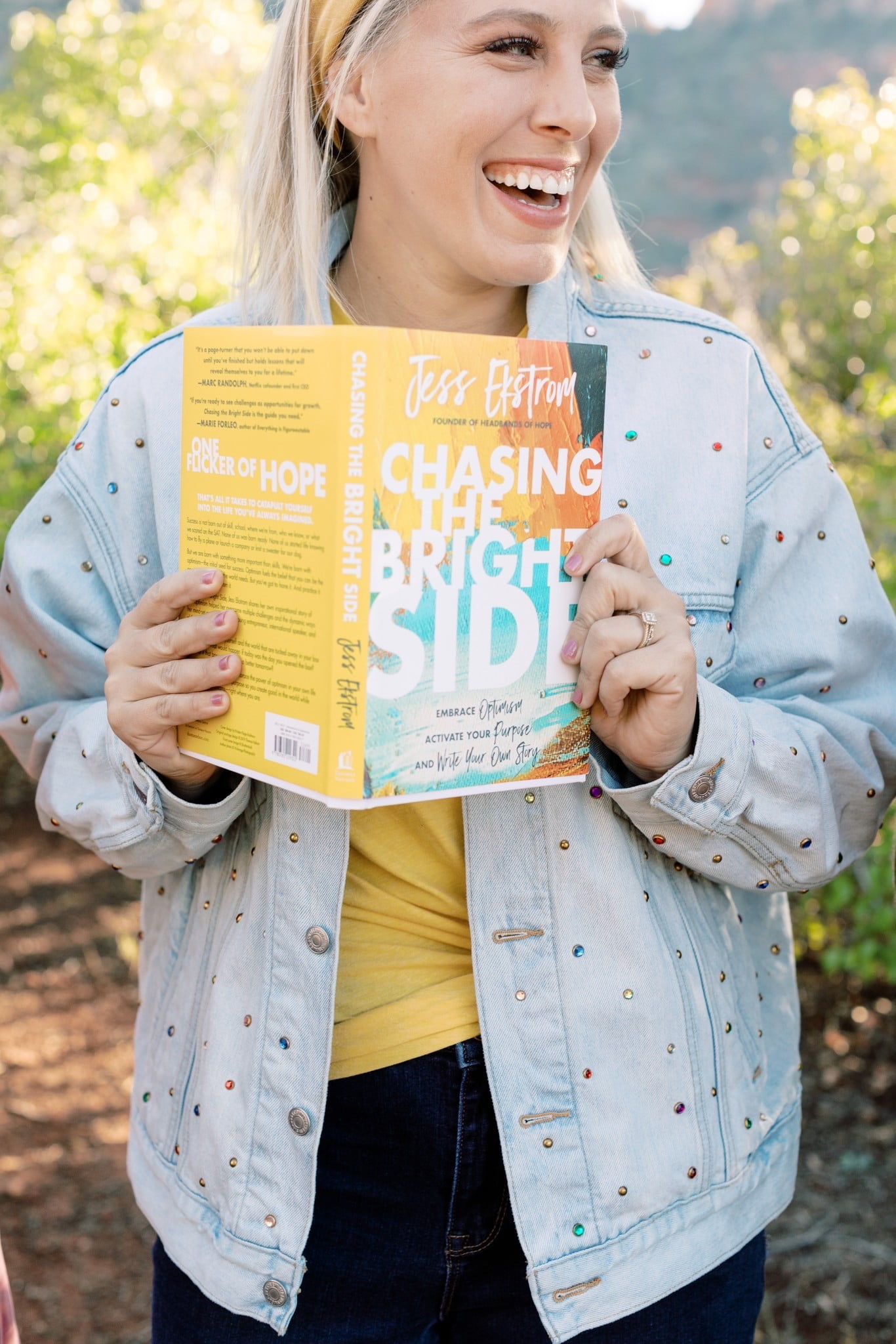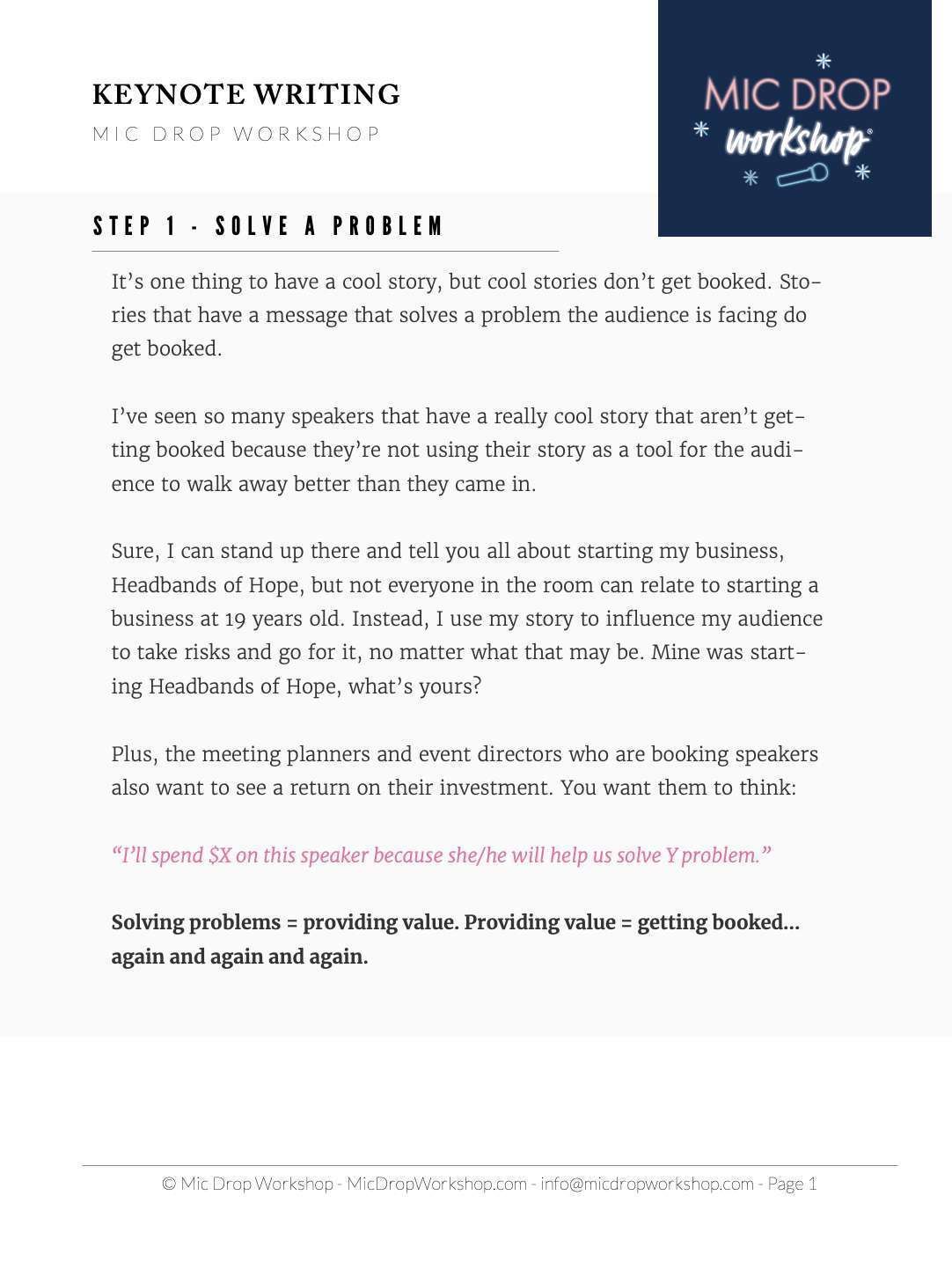SHOW NOTES:
Are you using clubhouse to grow as a professional speaker? With the platform becoming more and more popular, there is so much potential to gain awareness for your brand and network with others.
In this episode of Business on the Brightside, Mothyna James-Brightful joins us to discuss how you can use clubhouse for your brand! Additionally, we talk about steps we can all take to create more diversity and inclusion in the speaking and event industry!
First Paid & Non-Paid Speaking Gig (1:25)
Pitching Yourself in Your Clubhouse Bio (8:05)
How to Overcome the Fear of Speaking (9:17)
Diversifying Speaking Engagements (11:50)
Diversifying Your Experience (15:22)
Advice to Speakers to Stay Active (18:38)
Links:
instagram.com/mothyna
sistermothyna.com
stagereadyspeaker.com
Grab the free email templates.
Review the Transcript:
Jess:
Y’all are in for a treat today. One of my new friends, Mothyna James Brightful is going to be joining us and Mothyna And I met in a Clubhouse room. I feel like that’s like the 2021 modern romance now. And if you’re not familiar with Clubhouse, it’s a new app that’s like an audio only live podcasting, whatever you want to call it. We’ll get into it a little bit more in the episode. But we met in a Clubhouse room about speaking engagements and I was just blown away by her advice and her tips and what she’s done for the world. Mothyna has trained over 100,000 individuals in the field of sexual violence prevention. She was even awarded the 2009 Governor’s Award for volunteer service in Maryland. She is one impressive woman who is helping change the game of speaking. So please welcome Mothyna.
Jess:
What’s up everybody, it is Jess Ekstrom and welcome to Business on the Bright Side, the podcast where you can learn how to make a living and make a difference at the same time. Life is short and so is my attention span. So let’s get started. One of my favorite questions to ask speakers is what was your first gig? And how did it happen?
Mothyna:
Professional gig?
Jess:
Let’s start with either just your first gig. And then we’ll go to professional gig.
Mothyna:
My first professional speaking gig, that I got a check for, I was 22 and I was training on elder abuse. How to recognize it, how to be supportive. It was my very first training. I’ll never forget this. I was in front of police officers, all of them, not like rookie cops, no, they were like 20, 30 year seasoned detectives. And they’re all staring at me like, “What are going to do?”
Jess:
I’ve had that look before too.
Mothyna:
Like, “Wrap it up,” and I hadn’t even begun. And I got that because I started working as an educator at a rape crisis center and they were doing elder abuse. And that’s how I got my first session. And I was like, “I don’t know if I can do this.”
Jess:
So you didn’t catch the bug right away. You were like, “I don’t know if this is for me.”
Mothyna:
Not at all. And I started, of course, speaking… So my first unprofessional, I didn’t get a check for it. I ran Miss Morgan State University. I was the queen of my school. And this was also memorable because I was supposed to go to an away game in New Jersey and instead I was in front of an audience of about 1500 people introducing the mayor of city. And I thought that was important.
Jess:
It is, yeah.
Mothyna:
But I got flack for it by some of the campus administrators. They definitely was like, “Where were you?You’re my queen. I need you.” And I was like, “Okay,” I never thought that it would make that big of a difference. But that was it, that was my first major non-paid speaking engagement. I was introducing Mayor Martin O’Malley at the time. Who was the mayor of Baltimore.
Jess:
Wow, that’s amazing. So when did you feel like you started to catch your groove? When did you realize, “Oh my gosh, this is for me?” Because now not only do you speak, you’ve trained, what was it, I saw on your website over 100,000 women to do the same?
Mothyna:
Over 100,000. I’ve trained over 100,000 individuals to understand, recognize, report issues of sexual violence in particular. And then when I add the women who I’ve done personal development with, empowerment with work, I don’t even know, I stopped counting to be honest, because I was just less committed to the numbers then, and more committed to the impact. And there comes a time when you need the numbers to really like buffer and give some credit. Like really committed to that. I think the biggest difference for me when I really got that bug and that juice, I considered myself a writer. I don’t now, but I considered myself a writer. And the first time I was working with a group of teens, actually, well they were middle-schoolers, was the first time where I was like, “Well maybe I can do this.”
Mothyna:
Because at the end of the session, I had a teen come up to me and disclose some violence or abuse that was happening in the home. And I knew what to do finally because the first time I had that experience, I didn’t know what to do, but this time I knew what to do. I knew what to say. And I knew that the disclosure came because I was willing to step in front of the room. I was willing to be crazy as I needed to be to get their attention and that’s what made the impact for me. When I got that one person out of a classroom of 20 or 25 to say, “You just made a difference for me,” not in those words, because middle schoolers don’t talk like that. But the impact, that was what gave me the true bug. I was like, “No, you’re meant to do this.” And it took other instances over the years to really, you know this, to really be like, “Nah, this is your zone of genius. You’re not just good at this, you’re slamming it.”
Jess:
I love that zone of genius is such a… It’s such a magical place to find. And you’re lucky to find it early on in life, where you have a runway where you can explore it and you and I, we connected on Clubhouse, which first of all, what’s your vibe of Clubhouse right now?
Mothyna:
I actually love Clubhouse. Clubhouse gives three main things that I need right now. So one is connections, and I look at connections as opportunities where things I’m going to learn or people I might want to follow that are leaders in their industry. I look at collaborations as what you and I have right now. People who are similar industries, like-minded that you’re like, “We’ve got to work together.” And then of course clients. So my first two weeks on Clubhouse, I was doing an event that ended on December 14th, the day before my birthday, and my first two weeks on Clubhouse, I was able to fill that event.
Jess:
Oh my gosh, that’s incredible. So just as a recap for anyone listening, who’s like, “What the heck is this Clubhouse thing that I keep hearing about?” The way that I explain it, and maybe you have a better explanation is that it’s really an audio only social media platform where you can listen to what they call rooms, which maybe the biggest similarity would be like a panel or almost like listening to a live podcast happen in real time. You can raise your hand, you can come up on stage, you can host your own room. I was super unsure about it when I first came on.
Jess:
And then I realized, like you said, the ability to connect with people. You and I maybe, we have so much in common, but we would have never brushed shoulders had it not been for us being in a speaking room together. The other thing that I was really excited about is we’re in a weird time for speaking engagements right now. Clubhouse can be a really great supplement to speaking, not just from a practice building, but also a platform building. So what would you say for speakers who maybe are in a lull right now with the pandemic? How can they utilize Clubhouse?
Mothyna:
I love that. I would utilize Clubhouse this way. First, I would start hosting my own room, share my areas of expertise. I would start following people who are amazing, that again, you want to connect and collaborate with, and invite them into your rooms. And if you’re doing really powerful topics, what I call tantalizing titles, then you’re probably going to garner that interest and attention. And sometimes we hop in rooms based on the title and the number of people in them, because you can 100 people, this room has 1,000 people. And I would also then, in terms of looking for speaking engagements, put it in your bio. If you’re going to be on Clubhouse, drop in your bio, I literally had somebody reach out to me that was like, “Oh, I heard you. And I looked at your bio and it said that you were doing speaking engagements for 2021.” Sometimes you think, “Oh, that’s a little too simple, of course I’m…” No, put it in your bio, put it in black and white so it doesn’t live in gray.
Jess:
I love that. And I remember going on your bio and I am a huge advocate for people that it’s just like the lowest hanging fruit is just say that you’re a speaker. Just put it in your bio. People won’t book you to speak if they don’t know you’re a speaker. You took it a step further and gave the season that you’re now accepting gigs for. And I thought that that was such an awesome way to not just show that you speak, but, “Hey, this is what I’m available for. This is what I’m looking for.” And make the ask, put it out there. So how do you get people that you work with over that fear? I think a lot of people that are like, “I have this story within me. I just don’t know how to be a speaker.”
Mothyna:
So one of the things that we first want to do for anybody who’s like, “Yes, I’ve got this story. How do I move forward?” Is identify who you want to talk to. And you’re talking, you’re listening to somebody who’s literally spoken in pre-kindergarten classes on to training professionals in the military and the like. And I found pre-kindergarten, yeah, over that. So I did that my first probably five years speaking. And then I hired somebody to handle those presentations.
Mothyna:
And then I realized really stiff environments aren’t for me. So identify what’s for you. I love high engagement, high energy spaces, predominantly where I get a chance to speak to women. That’s me. What is your space? And then I’ll close on this as the next strategy. I want you to identify who you want to speak to, find where they are, and go there. Go to those spaces and let them know who you are, give them your verbal business card, because we’re all under a pandemic right now, so you cannot be giving out physical business cards, but even then, but give them a digital verbal business card and let them know how you show up in the world and start asking for opportunities. Most people don’t get sales because we don’t ask for them.
Jess:
Right, I like to think of it how… If you’ve ever been to a concert or a basketball game and they have the t-shirt guns that they’re shooting out, no one’s going to get the t-shirt who’s just sitting there on their phone. You have to stand in the trajectory of what you want. And it’s the same with speaking. It’s like, “Oh, I really want to speak to women who are starting businesses,” or, “I really want to speak to some sort of moms group.” It’s like, “Well, you’ve got to stand in the trajectory.” Where’s the t-shirt gun aiming and put yourself there and ask for it. I think that that’s another big thing that’s just sometimes as women, we don’t want to overstep or feel like we’re selling ourselves, but I’m like, “That is bullshit. We’ve got to do it.”
Mothyna:
You have to. You know what my coach said to me? My coach said to me when I had a problem asking for the sale, she said to me, “Mothyna, are you willing to have a dignified conversation?” That sounds important, doesn’t it? I said, “Yes I am.” She said, “That’s all sales is, sales is a dignified conversation where you lay out the options and then they get to choose. You want them to choose powerfully yes to you or no to you, because that way it frees you up to move into the next opportunity. And not now doesn’t mean not ever.”
Jess:
Yeah, I love that. Hey, real quick. Have you ever felt like you were made for more, but you’re just not sure what it is that you want to create? Or maybe you have a ton of ideas bubbling over like champagne, but you just don’t even know where to begin? A blank page in front of you can feel daunting and overwhelming. So I wanted to create a guided online journal designed to give people the clarity they need to make the world just a little bit brighter. Bright Pages is a guided online journal for people who do. Here’s how it works.
Jess:
You have your own private journal with a designated log-in and each day you get a daily prompt inside the platform, but it’s also emailed to you and you can just reply directly to that email with the prompt and it will save it into your journal. Technology, am I right? One of my favorite Bright Pages features are the prompt pathways. You can pick a pathway based on a goal that you have, whether it’s writing a book, crafting a talk, or maybe starting a business, or even just getting out of a creative funk, then you’ll get prompts delivered to you for one week based on that specific pathway that you chose. I mean, sign me up. Business on the Bright Side listeners get a special discount. So head to brightpages.com and enter the code pod to get 20% off the annual plan. That’s bright pages.com and enter the code pod, P-O-D.
Jess:
And since we both are really ingrained in the speaking world, I’d love to take a moment to talk about how… First, the thing that I was looking at in the speaking world is how do we get more women on stage? And I was tired of the all male panels and being the token women in there. But now I have this whole new awareness of tokenism in speaking, especially with Black women. And so how can someone like me, a white woman speaker, help elevate, amplify, get more speaking engagements for Black women? How do we work together and do this? Because one of the cool things about speaking is it’s such a collaborative industry, where someone books a speaker, they’re not going to lose anything by referring another speaker. But curious if you have any tips, how can we work together on this?
Mothyna:
That’s powerful because that’s the most significant one right there this is teasing right off of what you just said. And that is are you diversifying your knowledge base about who’s out there, particularly women of color, that are experts in their industry so that you could refer? I used to keep a running log of speakers that I knew and I’m honestly [inaudible 00:14:40]. But just really keeping in mind, because people ask for certain subjects that I just was not committed to speaking about, found it incredibly important, and thus wanted somebody to have the best in that industry.
Mothyna:
So I knew at one point in time, I’ve kind of moved away from it now, but at that time it was who does bullying, who does gang prevention, who does all of these other prevention strategies than me that I was not an expert in? It’s the same concept. Do you know people of color and women, Latinas, do you know Asian Americans? Whomever, wherever they’re from, that are industry experts and are you encouraging yourself to learn who they are and get to know them? And then are you willing to make that reporting? Are you able to position them in front of people?
Jess:
Yeah, I actually put together some email templates for anyone who’s listening, of not just how to refer women and women of color to speaking engagements, but also to challenge events because sometimes I would just say yes, and show up and then all of a sudden I’d be there and I’m like, “Where is there any diversity here?” And I would feel almost embarrassed to be on this speaker roster that was all white. And I realized, I’m like, “I don’t want to say yes to events that I don’t know how they’re going to be diversifying their lineup.” So I’ve started challenging them and there’s a way that you can politely do that without canceling them. You can say, “Hey, I noticed…” But there’s some ways that maybe we could add some more diversity and have some great people in mind for that. Tell me what topics you’re looking for and would love to refer that. But I think that, a lot of events, it’s not going to be acceptable anymore and they have to discover ways to do this.
Mothyna:
That’s beautiful. And I love that you have that resource. Raising my hand, will love that resource as well. Happy to share it. And I agree with you. The other thing that I think is also important is we also have to diversify experience, so it’s not just… We’ve got to go beyond even color and gender. It’s about, and certainly beyond race, but it’s also about the diversity of experience. What does my experience look like? I am a little Brown girl from the Caribbean that then moved to upstate New York that lives in Maryland and went to college. I have a lot of affinity and, what’s the word I’m looking for, [foreign language 00:17:24], I have quite a few things going for me. And then I’ve got lots of things that will show up as weights in my journey. And so that diversity of experience, because I am the Brown girl, doesn’t mean my experience is exactly the same as a girl who grew up straight from Baltimore. That diversity of experience is really important. I love that you noted that and challenged in those spaces.
Jess:
Yeah, and something that I have noticed about myself is, like you said, diversity of experience. And I know that my childhood and even my story of starting Headbands of Hope, it comes from privilege. I had the safety net where I could leap. And so going up there, sharing my story of how I started this company in college, it’s not this, “I was on my last leg and this was going to be it.” I had this really great safety net of my family. And I think that I’ve been… I encourage speakers, “You don’t have to be ashamed of your privilege, but call it out.”
Jess:
And I think that there’s ways that, like you said, diversity of experience is everyone on the stage, did they start on the same track? Because I think a lot of times people pick speakers based on what their resume says of where they’re at now, but I’m like, but where did they begin? That’s the other story in all of this, it’s not just like, “Oh, I’ve been in Forbes. And I’ve toured with Tony Robbins,” or whatever it is. It’s like, no, let’s look at the story of where they started because maybe they might not be exactly where some of these other speakers are, but they still had a hell of a run.
Mothyna:
Oh, so good. So good. And that also discourages some speakers. And that’s why we talk about diversity of experience. Just because that isn’t your story, you didn’t eat out of trash cans and all those types, that’s not your story, it doesn’t mean your story doesn’t have value. And on the other side of that fence is that story of privilege. But how does it look up, maybe your story, because it’s based on privilege, looks a little different. So that’s not because you’ve had your own challenges. So that’s that diversity of experience that all of those things are valuable and we have to bring them to the table because there’s somebody that’s in similar shoes to you that needs to hear your story, or that’s in completely different shoes from you and they need to understand that side.
Jess:
Absolutely, so let’s wrap it up with what advice would you give to speakers right now where we’re living in maybe a non conference world in the pandemic? What can someone do out there to keep that speaker muscle active?
Mothyna:
Oh, that’s so good. I would encourage you to diversify the type of speaking you’re doing virtually. So case in point, are you doing more panel conversations? So when we think about live speaking engagements, there’s the panel, there’s the keynote, there’s the training, there’s the facilitation. They’re those different speaker roles. I’m encouraging anybody to still practice those in a virtual space. They’ll stand up. I’m standing right now. However, I have my little high stool bar stool chair over there so that when I’m training, I can still stand. I have my camera situated so I know my blacked out zone where I can still move and still be welded and visible. So allow yourself to still practicing those ways. So be on panels, talk in sound bites so that you can practice what it looks like to be a TV, radio, or podcast guest. Really allow yourself to still exercise the mode as if you’re doing it live.
Jess:
Oh, I love it. Exercise the mode as if you’re doing it live. Show up as if they’re paying you 20 grand, even if it’s just on your Instagram live for your mom and your sister, you keep showing up the same.
Mothyna:
And I say, because I was on a Clubhouse with Tiffany Haddish and someone mentioned.
Jess:
Oh my gosh, I hate that I missed that room.
Mothyna:
She’s the… Oh, so good. So she was talking about how there’s movies now that are airing, I can’t remember the channel, like a VH1, BET, something like that, that she did long before she was discovered, made it big, or basically Girls Trip, which is when everybody began to know about her. And she said, “You know what they’re doing now? They’re running those movies. They’ve got me on the front cover as if I was at the time when I wasn’t. I’m not getting paid at all for that.”
Mothyna:
So I say this in relation to you as a speaker, if you are doing your live in front of your mom or your cousin and your best friend or your dog, still do it, play full out because as you grow and as you get big and people are going back into the archives and looking, you still want to be as amazing on the work you did five years before when you were speaking to just a few as when you’re speaking to the many years from now.
Jess:
You never know who’s listening. That’s it. Mothyna, You’re amazing. Where can people find you? How can they work with you?
Mothyna:
Thank you. At all things Mothyna, that’s M-O-T-H-Y-N-A, M-O-T-H-Y-N-A. There it is, that’s my fast version, my hip hop version. So I’m at all things Mothyna, I’m at sistermothyna.com, and that’s sistermothyna.com. And I’m so excited because if you’re interested in learning more about speaking, storytelling in particular, which is my 100% zone of genius, then go to stagereadyspeaker.com, stagereadyspeaker.com.
Jess:
And you’re on Clubhouse.
Mothyna:
And of course I’m on Clubhouse.
Jess:
Let’s not forget that. Let’s host another room together. You down?
Mothyna:
Oh yeah, I’m excited. I’m supposed to be in a room at technically 10:30.
Jess:
Okay, I’ll get you in there. All right, thanks Mothyna.
Mothyna:
Sounds good, thanks.
Jess:
Thanks for listening to Business on the Bright Side, I’m your host, Jess Ekstrom. For all the show notes, head to businessonthebrightside.com and be sure to tell me what you thought of this episode on Instagram. And if you’re picking up what I’m putting down, subscribe and write a review wherever you consume podcasts. See you next time and keep chasing the bright side.

